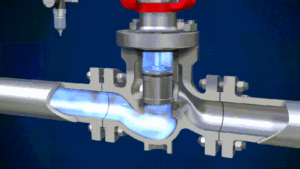The world of water technology is rapidly evolving, with AI water tech trends leading the charge towards more efficient and sustainable water management solutions. As industrial engineers, understanding these trends is crucial in adapting to and leveraging new technologies in this vital sector. In this article, we will explore the most significant AI water tech trends that are shaping the future of water systems.

Introduction to AI in Water Technology
Artificial Intelligence (AI) has become a game-changer in various industries, and water technology is no exception. The integration of AI into water systems aims to enhance efficiency, reduce waste, and ensure sustainable management of water resources. With the global challenges of water scarcity and climate change, AI-driven solutions are more important than ever.
The Role of AI in Modern Water Systems
Predictive Maintenance
AI algorithms are increasingly being used for predictive maintenance in water systems. By analyzing data from sensors and historical maintenance records, AI can predict when a component is likely to fail, allowing for timely interventions and reducing downtime.
Smart Water Management
AI technologies are enabling smart water management by optimizing the distribution and consumption of water. Advanced algorithms can analyze usage patterns and environmental data to optimize water supply, ensuring that resources are used efficiently.
Key Technologies in AI Water Tech
Machine Learning and Data Analytics
Machine learning and data analytics are at the heart of AI water tech. These technologies enable the processing of vast amounts of data to identify patterns and make informed decisions about water management.
IoT and Sensor Integration
The Internet of Things (IoT) and sensor integration play a crucial role in AI water tech trends. Sensors collect real-time data on water quality, usage, and environmental conditions, which is then analyzed by AI systems to optimize operations.
Benefits of AI in Water Technology
Efficiency and Cost Reduction
AI technologies can significantly improve the efficiency of water systems, leading to cost reductions. By optimizing operations and maintenance, organizations can save on energy and resource costs.
Environmental Sustainability
AI-driven water tech contributes to environmental sustainability by reducing water waste and promoting efficient resource management. This is crucial in addressing global water scarcity and environmental challenges.
Challenges in Implementing AI Water Tech
Data Security and Privacy
With the integration of AI and IoT systems, data security and privacy become significant concerns. Ensuring the protection of sensitive data is a critical challenge that needs to be addressed.
Infrastructure and Cost
Upgrading existing infrastructure to incorporate AI technologies can be costly. Organizations must weigh the benefits against the initial investment required for implementation.
Future Prospects of AI Water Technology
Advanced AI Algorithms
The future of AI water tech lies in the development of more advanced algorithms that can better predict and optimize water usage. These advancements will further enhance the efficiency and sustainability of water systems.
Integration with Smart Cities
AI water tech is expected to play a key role in the development of smart cities. By integrating with other smart systems, water technology can contribute to a more connected and efficient urban environment.
Case Studies in AI Water Tech
Smart Plumbing Innovations
Innovations in smart plumbing are a prime example of AI water tech trends in action. For more insights on smart plumbing, visit Smart Plumbing Myths Debunked.
AI-Driven Water Valves
AI-driven water valves offer precise control over water flow and usage. To explore what’s inside these smart valves, check out What’s Inside a Smart Water Valve.
Conclusion: Embracing AI Water Tech Trends
As we look to the future, embracing AI water tech trends will be essential for industrial engineers and organizations involved in water management. By leveraging advanced technologies, we can create more efficient, sustainable, and resilient water systems. For further exploration of the future of home water systems, visit Future of Home Water Systems.

Frequently Asked Questions
What is AI’s role in water conservation?
AI plays a crucial role in water conservation by optimizing resource management, reducing waste, and enhancing efficiency in water systems.
How does AI improve water quality monitoring?
Through the use of sensors and real-time data analysis, AI improves water quality monitoring by providing accurate and timely information on water conditions.
Are there cost benefits to using AI in water systems?
Yes, AI can lead to significant cost savings by improving operational efficiency, reducing maintenance costs, and optimizing resource usage.
This article contains affiliate links. We may earn a commission at no extra cost to you.



